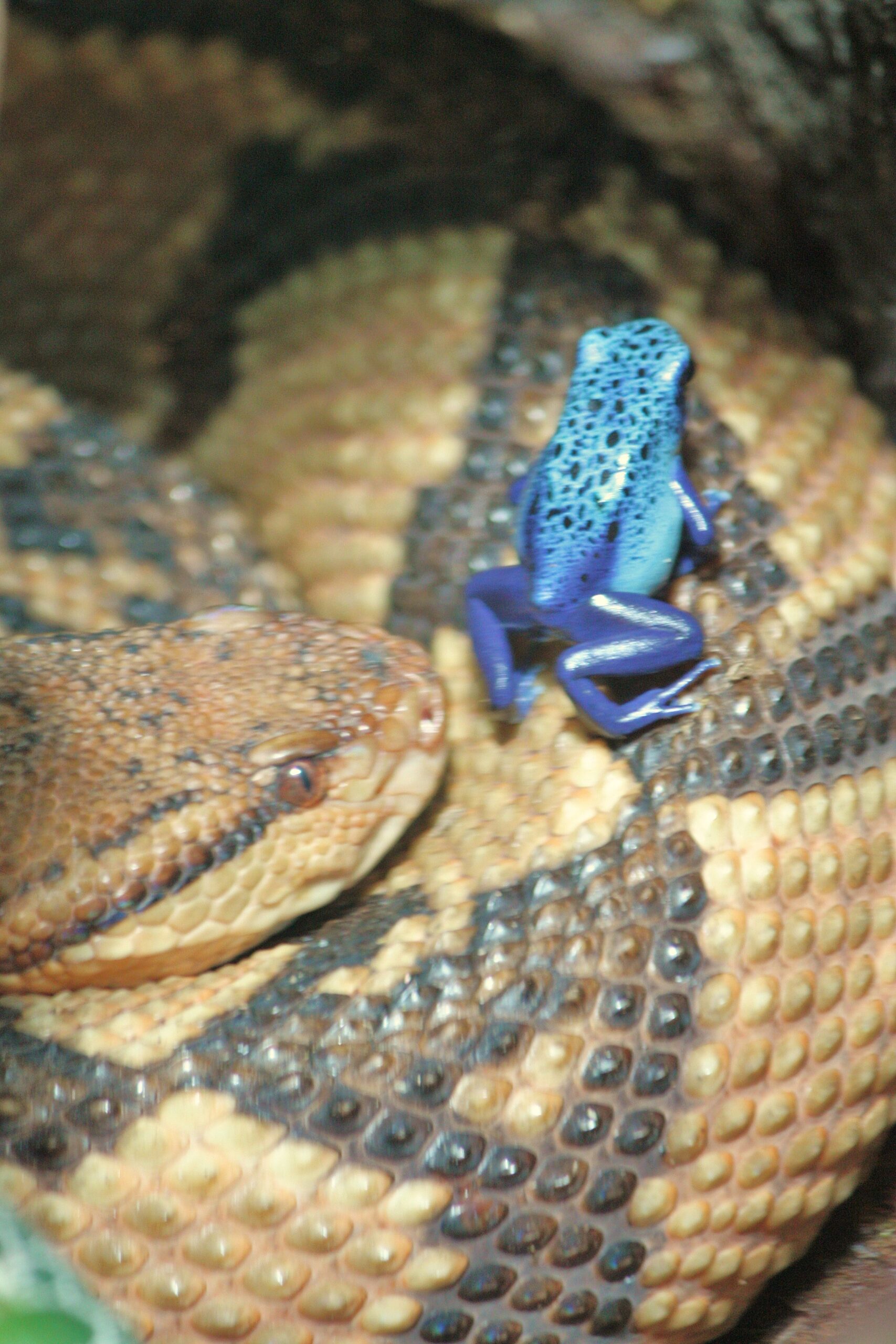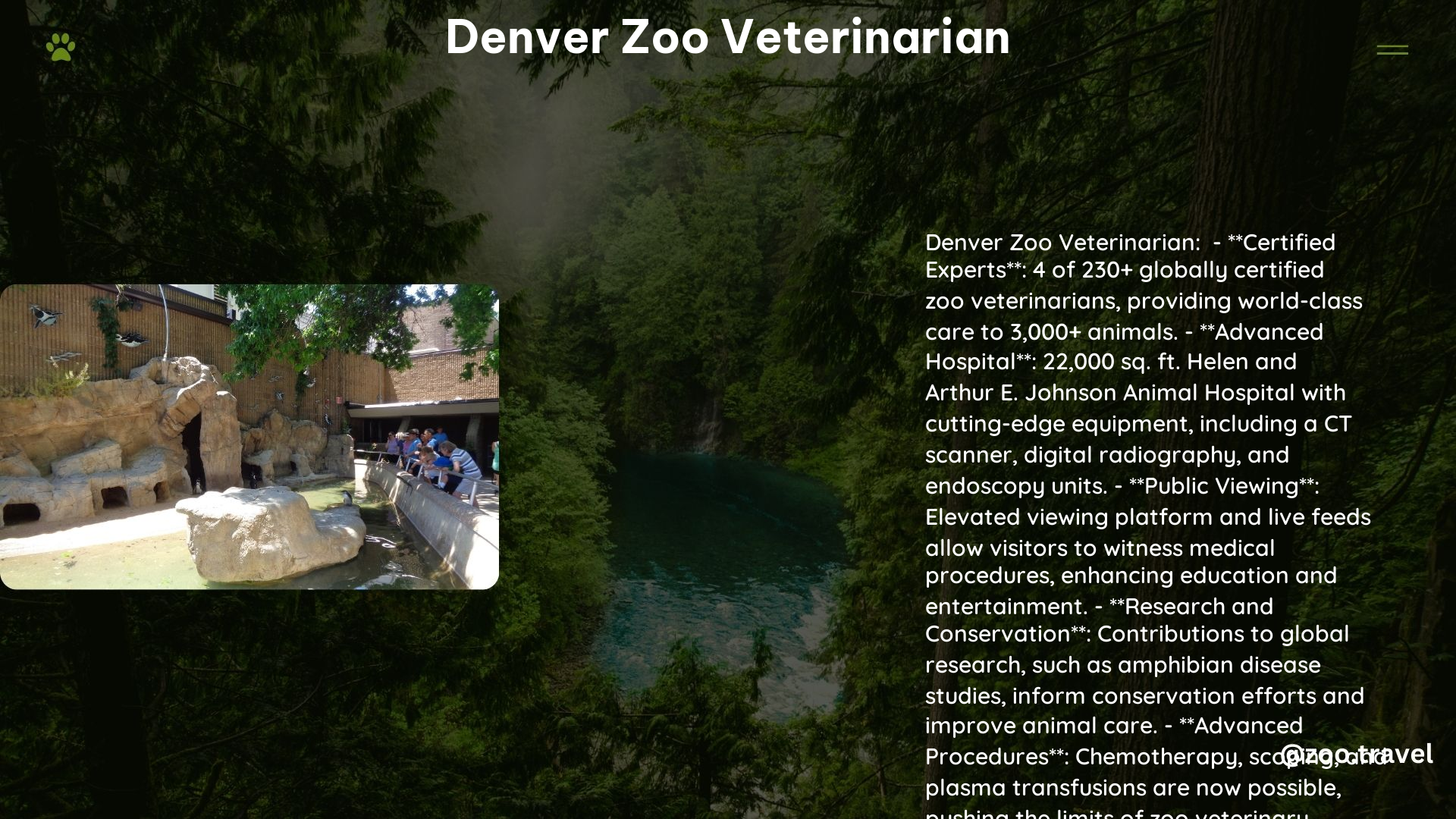Denver Zoo veterinarians are responsible for providing world-class medical care to over 3,000 animals from more than 450 species. They utilize advanced equipment, collaborate with experts, and implement preventative care programs to ensure the health and well-being of the zoo’s diverse animal population.
Typical Responsibilities of Denver Zoo Veterinarian

- Medical and Surgical Care: Providing routine check-ups, treatments, and surgeries to the animals.
- Disease Prevention and Management: Developing and implementing disease prevention and management strategies.
- Nutrition and Diet Management: Working with nutritionists to develop and manage diets for the animals.
- Conservation and Research: Participating in conservation and research initiatives to advance the understanding and care of zoo animals.
- Education and Community Engagement: Engaging with visitors and promoting the zoo’s mission to inspire communities to save wildlife.
Ensuring Health and Well-being of Denver Zoo Animals

- Utilizing Advanced Medical Equipment: The zoo is equipped with state-of-the-art medical equipment, including a CT scanner, digital radiography, ultrasonography, endoscopy units, and advanced anesthesia monitoring.
- Collaborating with Other Experts: Veterinarians work closely with other animal care professionals, such as nutritionists, keepers, and researchers.
- Implementing Preventative Care Programs: Developing and implementing preventative care programs, such as vaccination and parasite control.
- Monitoring Animal Health: Continuously monitoring animal health and promptly addressing any health issues.
- Providing Enrichment and Behavioral Support: Working with animal care teams to provide enrichment activities and behavioral support.
Specialized Training and Experience for Denver Zoo Veterinarian
- Doctor of Veterinary Medicine (DVM) Degree: A DVM degree from an accredited institution is essential.
- Certification in Zoological Medicine: Many Denver Zoo veterinarians are certified by the American College of Zoological Medicine (ACZM).
- Residency Programs: Completing a zoological medicine residency program, such as the Illinois Zoological and Aquatic Animal Residency (IZAAR).
- Experience in Zoological Institutions: Working in other zoological institutions can provide the necessary experience and skills.
Up-Close Look: Animal Hospital Experience at Denver Zoo
The Denver Zoo offers an “Up-Close Look: Animal Hospital” experience, allowing visitors to witness veterinary care firsthand. This 45-minute behind-the-scenes tour costs $150 per group (maximum of 6 people) and is available on Wednesdays and Saturdays at 3:00 p.m. Participants must be at least 8 years old, and closed-toed shoes are recommended.
References
- Denver Zoo. (n.d.). Hospital. Retrieved from https://denverzoo.org/hospital/
- Denver Zoo. (n.d.). Up Close Look: Animal Hospital. Retrieved from https://denverzoo.org/up-close-look-animalhospital/
- 5280 Magazine. (2021, August 1). Inside the Denver Zoo’s New Animal Hospital. Retrieved from https://www.5280.com/inside-the-denver-zoos-new-animal-hospital/
- Stantec. (2021, May 24). Denver Zoo opens new animal hospital to the public. Retrieved from https://www.stantec.com/en/news/2021/denver-zoo-opens-new-animal-hospital
- LinkedIn. (n.d.). Jimmy Johnson, DVM, MS, CertAqV, DACZM. Retrieved from https://www.linkedin.com/in/jimmy-johnson-dvm-ms-certaqv-daczm-68734918
